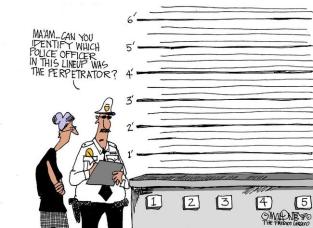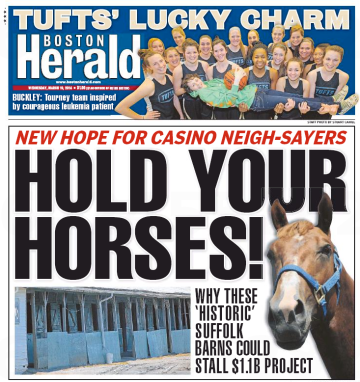Well the hardreading staff opened up the old emailbag and here’s what poured out:
This week, The Boston Globe stands with the Patriot Ledger, the Boston Herald, and all of GateHouse Media Massachusetts in an unprecedented, coordinated condemnation of Secretary of State William Galvin’s rulings on the state’s public records law.
These newspapers will each publish editorials on open-records issues as part of a unique statewide collaboration amongst these news organizations. The Boston Globe’s editorial, now available online at BostonGlobe.com, will run in the print edition of the Sunday Boston Globe on March 15th.
Sneak peek:
With Mass. public records law in tatters, it’s time for reform
WHEN AN ordinary citizen requests basic government records in Massachusetts, he or she often faces frustrating delays and opacity. The Commonwealth has remained notoriously weak in providing public records, since the laws governing them are essentially toothless, and thus easily ignored.
Recent rulings, however, have made a bad situation intolerably worse. By interpreting regulations governing the privacy of criminal records too broadly, Secretary of State William Galvin’s office has established the police as the arbiters and censors of arrest records. In one recent case described in a story this week by Globe reporter Todd Wallack, Galvin’s office ruled that Boston police can withhold the names of five police officers who were caught driving drunk.
The Boston Herald ran its editorial in today’s edition, which – thanks to the unusual calculus of the Herald’s circulation – actually might have a higher readership than tomorrow’s.
Time for ‘Sunshine’
So here it is the eve of Sunshine Week and we in Massachusetts have precious little to celebrate.
With every passing day the state’s public records law — never one of the best in the nation, but hardly in the sorry state it finds itself today — is being nickel-and-dimed to death by regulations and the bureaucrats who interpret them.
Case in point, a series of recent rulings by the secretary of state’s office that effectively put off limits to the press and the public a host of information about arrests and criminal records.
We credit the reporting of The Boston Globe’s Todd Wallack with bringing this situation to light in an article in Wednesday’s edition. And today we stand with our colleagues at the Globe, the Patriot Ledger (and others in the GateHouse Media family) that are running similar editorials — in condemning a practice that threatens not just the ability of the press to do its job but public safety as well.
We really are close to the end times when the frosty local tabloid gives the Globe credit for anything.
Then again, the Patriot Ledger also credits Wallack in its editorial, which begins this way:
Giving police discretion to keep public arrest records secret is criminal
The Patriot Ledger stands with the Boston Globe, Boston Herald and GateHouse Media against Galvin’s rulings on state’s public records law
Massachusetts police now have sweeping discretion to decide which criminal records they will – and will not – release to the public, according to a series of rulings made by Secretary of State William Galvin.
That level of discretion should not exist.
Police should never have the power to shield the identities of those they arrest or keep information about arrests secret. Given their role in our society, police should always be transparent – most especially when one of their own is charged with a crime.
Further on: “In a March 11 Globe article, “With Mass. OK, police withhold criminal records,” Todd Wallack reports Galvin’s office “decided that many records related to criminal charges are exempt from the Massachusetts public records law, giving individual police chiefs and other officials the power to decide what to release or keep secret …”
The Patriot Ledger calls the triple-teaming “an unprecedented, coordinated condemnation of Galvin’s rulings on the state’s public records law.”
We doubt this coordination will become a regular feature in the local press, but nice to see precedent broken every now and again.





 Posted by Campaign Outsider
Posted by Campaign Outsider 
